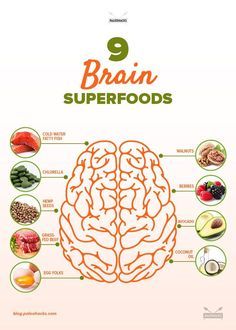As we age, it becomes increasingly crucial to prioritize our brain health. The brain is responsible for controlling all bodily functions, storing memories, and enabling our cognitive abilities. Therefore, it is essential to adopt healthy lifestyle habits that promote brain health and minimize the risk of cognitive decline.
1. Maintaining Mental Stimulation
Engaging in mentally stimulating activities, such as reading, puzzles, or learning new skills, is vital for brain health. These activities challenge our cognitive abilities, promote neuroplasticity, and help keep our brain active and functioning optimally. By continuously learning and staying mentally engaged, we enhance brain connections and reduce the risk of cognitive decline.
2. Regular Physical Exercise
Physical exercise not only benefits our physical well-being but also plays a significant role in brain health. Studies have revealed that regular exercise increases blood flow to the brain, stimulates the growth of new neurons, and improves cognitive function. Incorporating activities like walking, swimming, or cycling into our routine can significantly contribute to maintaining a healthy brain as we age.
3. Balanced and Nutritious Diet
The food we consume directly impacts our brain health. A balanced and nutritious diet that includes foods rich in antioxidants, omega-3 fatty acids, and vitamins is vital. Antioxidants protect the brain cells from damage caused by free radicals, while omega-3 fatty acids aid in brain development and function. Foods such as fish, berries, green leafy vegetables, and nuts are recommended for their brain-boosting properties.
4. Sufficient Sleep
Adequate sleep is crucial for overall health, including brain health. During sleep, the brain clears toxins, regenerates cells, and consolidates memories. Insufficient or poor-quality sleep can contribute to cognitive decline, memory problems, and even mood disorders. Ensuring we get the recommended 7-9 hours of quality sleep each night is essential for maintaining optimal brain health.
5. Social Connections
Engaging in social activities and maintaining strong social connections is beneficial for brain health. Social interactions help stimulate the brain, enhance cognitive functions, and reduce the risk of mental health issues such as depression and anxiety. Whether through participating in group activities, volunteering, or spending quality time with loved ones, nurturing social connections positively impacts our brain health.
6. Stress Management
Chronic stress can have detrimental effects on the brain, including memory impairment and cognitive decline. Therefore, managing stress levels is crucial for maintaining brain health. Techniques such as yoga, meditation, deep breathing exercises, or engaging in hobbies or activities that promote relaxation can effectively minimize stress levels and protect the brain from potential damage.
7. Regular Cognitive Assessment
Regular cognitive assessments allow for early detection of any cognitive decline or potential brain-related issues. These assessments, conducted by healthcare professionals, evaluate memory, attention, problem-solving skills, and other cognitive functions. Early detection enables timely intervention and the implementation of strategies to maintain and enhance brain health during later years.
8. Intellectual Engagement
Intellectual engagement involves actively seeking new knowledge, engaging in discussions, and pursuing intellectual activities. This includes exploring new subjects through reading, attending lectures or workshops, and engaging in intellectual conversations. Intellectual engagement promotes mental agility, creativity, and critical thinking, contributing to overall brain health.
9. Regular Brain Exercises
Just like the body, the brain requires regular exercise to stay healthy and sharp. Engaging in specific brain exercises, such as puzzles, crosswords, or brain training apps, helps improve memory, attention, and problem-solving skills. These exercises challenge the brain and promote cognitive abilities, enhancing overall brain health.
10. Avoiding Harmful Habits
Avoiding harmful habits is crucial for maintaining brain health. Activities such as smoking, excessive alcohol consumption, and illicit drug use can have detrimental effects on the brain, leading to cognitive decline and increased risk of neurological diseases. By avoiding these habits, we can significantly improve our brain health and overall well-being. In conclusion, prioritizing brain health in later years is essential for maintaining cognitive abilities, reducing the risk of cognitive decline, and ensuring overall well-being. By adopting healthy lifestyle habits, engaging in intellectually stimulating activities, and taking proactive measures to protect our brain, we can promote optimal brain health and enjoy a fulfilling and meaningful life as we age.
